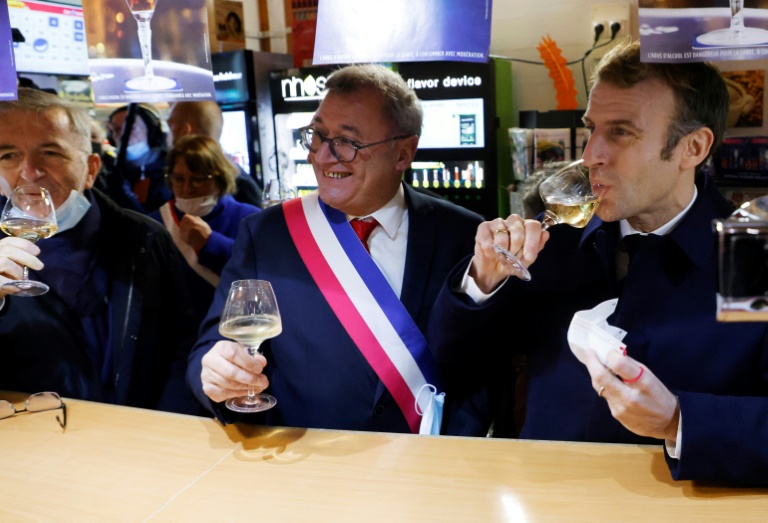French President Emmanuel Macron is yet to declare he will run for a second term in next year’s election, but his intentions are no longer in doubt and his unofficial campaigning is drawing fire.
After a rare two-hour press conference last week to outline his European ambitions, the 43-year-old head of state is to sit down for a long prime-time TV interview on domestic policy on Wednesday evening.
For a leader who has always kept the media at arm’s length and once theorised his role as acting like Jupiter, the Roman god of the sky, the sudden burst of transparency has not gone unnoticed.
Neither have a string of visits to small-town and rural France where he has wandered through picturesque cobbled streets, stopping to chat to shopkeepers or drinking wine in local cafes.
When asked again by a reporter last week whether he would seek re-election, he initially employed humour, saying the question was “a sign of affection, a hidden desire, almost an appeal”.
“In the time we are living through, the most important thing is that our institutions continue to function in the most stable way possible,” he continued, evading the question.
Like his predecessors including Francois Mitterrand and Nicolas Sarkozy, Macron appears intent on playing for time, using the presidential megaphone and the benefits of his office until as late as possible.
France’s role holding the rotating presidency of the European Union from January 1, which will see Macron set the official EU agenda, is also another factor favouring a late declaration.
“Emmanuel Macron is president of the republic, elected for five years, not four and a half,” one of Macron’s closest allies, top ruling party MP Christophe Castaner, told television channel France 2 on Tuesday.
“That the president is thinking is normal, that he’s contemplating things is normal, but in the meantime he’s president of the republic,” he added.
For government spokesman Gabriel Attal, “not campaigning is more of a disadvantage than an advantage for us because the reality is that it gives us less opportunity to respond to criticism.”
– Complaints –
Although a late declaration was always in Macron’s plans, aides say, the mood of the electorate and the dynamics of his challengers could also change his calculations.
For the first time, a poll by the Elabe survey group last week showed the former investment banker losing the second round of the election on April 24 to right-winger Valerie Pecresse from the Republicans party.
Pecresse, the combative head of the greater Paris region and a former minister under Sarkozy, has enjoyed a huge bounce in the polls since clinching her party’s nomination on December 4.
She has led criticism about Wednesday night’s TV interview on the TF1 channel and complains about an uneven playing field.
“We can’t have a president-candidate who has television channels open up for him whenever he wants it and is campaigning for hours on end, while his opponents get five minutes on a panel to respond to him,” she said on Monday.
She has promised to complain to France’s media regulator, the CSA, which monitors the time given to presidential candidates to ensure each of them gets a fair billing.
– Pecresse –
As the election campaign shifts in Pecresse’s favour, she has become the preferred target of Macron’s allies, who have been rehearsing different attack lines.
Some have portrayed her as posh and out-of-touch, or committed to an unrealistic programme of public sector cuts.
The danger posed to Macron from Eric Zemmour, a far-right pundit, appears to have waned after his dramatic entry into French politics in September.
Veteran far-right leader Marine Le Pen also risks being squeezed out of the race if the Republicans candidate can maintain her momentum.
Some in Pecresse’s camp believe the timing of Macron’s interview was deliberately chosen to clash with her scheduled appearance on a different TV channel, which has now been cancelled.
“Valerie Pecresse has become an obsession for Emmanuel Macron, even to the point of dictating when he plans his appearances,” an aide to Pecresse told AFP this week on condition of anonymity.











